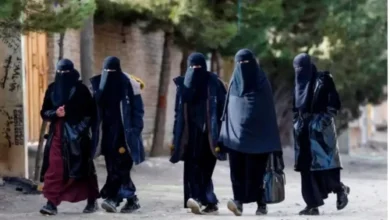Inclusion of Haqqani in Non-Inclusive Govt Triggers Concerns
In 2015, Pakistan had banned Haqqani Network as an implementation of the National Action Plan following the APS attack in 2015 in which 134 children were killed

The Taliban have finally announced the much-awaited interim government but the promise of inclusivity seems to be unfulfilled whilst the appointment of Sarajuddin Haqqani as homeland security minister has triggered global concerns.
The announcement has come three weeks after the Taliban walkover, ousting the Ghani government.
Mullah Mohammad Hassan Akhund has been named acting prime minister while Mullah Baradar will be his deputy.
The new premier of the Islamic Emirate was a confidante to the group’s founder Mullah Omar.
Read Also
Indians & Their Sympathizers Continue Blaming Pakistan
The founder’s son Mullah Yaqoob will look after the defence affairs of the Islamic Emirate.
List of Acting Ministers and Heads of Departments ( in English): pic.twitter.com/XozPDYjAF6
— Suhail Shaheen. محمد سهیل شاهین (@suhailshaheen1) September 8, 2021
Sarajuddin Haqqani is the interior minister but his selection has been widely criticized as he is on the list of “most wanted terrorists” issued by the US.
Besides this, the US government has put a $5 million bounty on his information.
Other than the interior minister, there are three other people under UNSC sanctions.
Unlike what was pledged, the interim cabinet doesn’t include women neither any member of minority nor a political leader who supported the US-backed government during its stay in Afghanistan.
The Haqqani factor
The appointment of Sarajuddin Haqqani as the homeland security minister has raised concerns for Pakistan as well.
In 2015, Pakistan had banned Haqqani Network as an implementation of the National Action Plan (NAP) following the APS attack in 2015 in which 134 children were killed.
The Pakistani government has not officially given any statement on the appointment of the interior minister whether it was informed or taken in confidence before the move.



